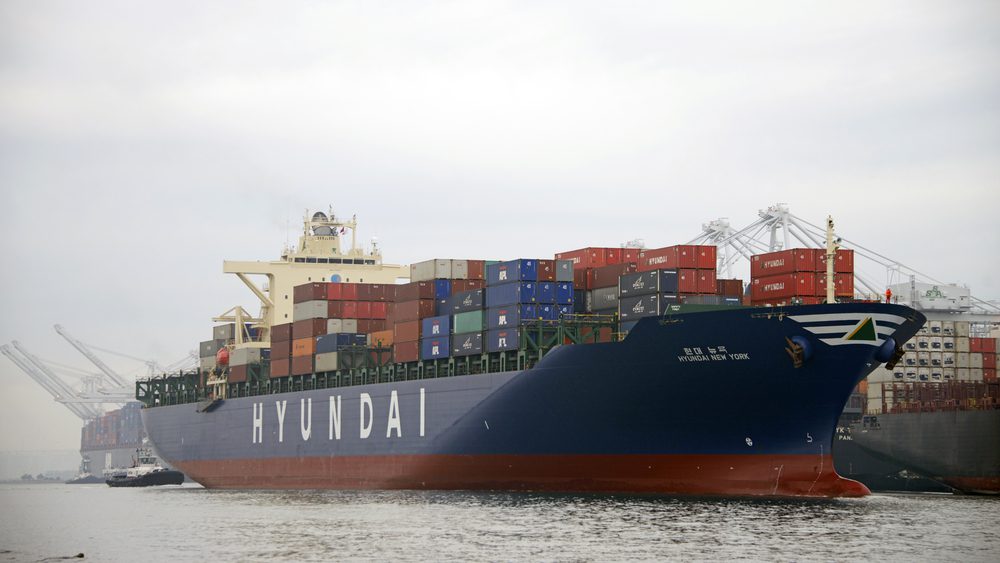Firms in Fed’s Beige Book Fret Over Any Lengthy Baltimore Port Closure
(Bloomberg) — The closure of one of the East Coast’s busiest ports after the collapse of Baltimore’s Francis Scott Key Bridge has so far not led to broad price increases,...


By Kyunghee Park and Kyungji Cho
(Bloomberg) — More than two years after announcing a 3.3 trillion won ($2.7 billion) bailout of the Hyundai Group, chairwoman Hyun Jeong Eun is still struggling to keep her late husband’s business empire afloat.
The South Korean conglomerate, a collection of 21 companies, announced additional bailout measures Tuesday that include selling stakes in Hyundai Securities Co. and Pusan Newport Co. to tackle a “liquidity crisis” that hasn’t been resolved. That’s despite having raised 3.6 trillion won as of Dec. 31 — 8.6 percent above its target — through a combination of asset sales, share sales, cost cuts and loans.
Hyun, a housewife who became head of Hyundai Group after the 2003 suicide of her husband, the favored son of founder Chung Ju Yung, is trying to rebuild an industrial empire splintered by family infighting, bad debts and an ill- fated effort to expand into North Korea.
At the heart of the group’s troubles is flagship Hyundai Merchant Marine Co., the unprofitable shipping company that has so much debt it amounts to 786 percent of its equity. The company has 2.2 trillion won of debt coming due by Sept. 30, and only 200 billion won of available cash. With the shipping market turning worse, analysts see no end in sight for Hyundai’s struggles.
“This year is going to be a brutal year for Hyundai Group,” said Park Moo Hyun, an analyst at Hana Daetoo Securities Co. in Seoul. “With the slump in the shipping industry, Hyundai Merchant doesn’t have the luxury of seeking help from other affiliates within Hyundai Group.”
Debt Restructuring
The company will exert every effort to sell Hyundai Securities and reach an agreement on restructuring maturing bonds with investors, said Lee Jun Ki, a spokesman for Hyundai Group.
“The group expects these efforts to help encourage creditors to also restructure debt to help tide over the the group’s financial problem,” Lee said. “At the same time, Hyundai Merchant will try to revise charter rates to enable it to become profitable this year.”
Korea Investors Service and Korea Ratings Corp both cut Hyundai Merchant’s credit rating to B+ last year. Korea Investors Service, a local affiliate of Moody’s Investors Service, has placed the company’s rating on negative watch, saying its liquidity risk may increase further if there are no additional restructuring plans or financial aid from the government or creditors.
Hyundai Merchant shares dropped 1.9 percent Wednesday to 3,120 won in Seoul, compared with the 35,443 won it closed at on Dec. 31, 2010. After five straight years of declines, the shares have lost 24 percent of their value so far this year, compared to the 3.6 percent fall in the benchmark Kospi Index.
Emergency Funding
South Korea’s second-largest shipping company is among shipping lines worldwide that are exploring mergers, selling assets and reducing workforce to stem losses as years of slowing global trade damp their earnings. Hyundai Group is taking additional steps to improve the flagship’s finances after discussions with creditors, including Korea Development Bank.
Hyundai Merchant will sell its bulk ships that are tied to long-term contracts, as well as a stake in affiliate Pusan Newport Co., to raise funds as slowing trade and excess capacity weigh on shipping rates.
The unprofitable company will receive 100 billion won in emergency funding, its parent Hyundai Group said Tuesday. This includes 30 billion won from group chairwoman Hyun and 70 billion won from asset sales, including a stake in Hyundai Asan Corp., the operator of the group’s tourism projects in North Korea.
In 2013, the Hyundai Group said it planned to sell Hyundai Securities, two other financial units and a hotel to raise as much as 1.3 trillion won. Hyundai Merchant also planned to raise about 1.5 trillion won selling stakes in container terminals and restructuring its bulk-cargo operations.
“Previous steps weren’t enough to resolve its liquidity crisis because of the persistently sluggish shipping environment,” the group said in Tuesday’s statement.
©2016 Bloomberg News
Join the gCaptain Club for curated content, insider opinions, and vibrant community discussions.


Join the 105,962 members that receive our newsletter.
Have a news tip? Let us know.
Access exclusive insights, engage in vibrant discussions, and gain perspectives from our CEO.
Sign Up




Maritime and offshore news trusted by our 105,962 members delivered daily straight to your inbox.



Essential news coupled with the finest maritime content sourced from across the globe.
Sign Up